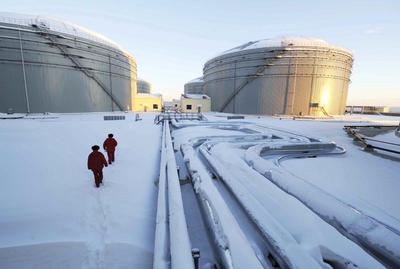Without the provincial LNG fiscal regime finalised, companies cannot meaningfully push forward with negotiations over these contracts, which underpin their projects. The provincial government can significantly increase the competitive edge of British Columbia’s LNG projects by reassessing the 30 November finalisation date for its new fiscal regime. It needs to get these critical details in place as soon as possible. In Asia’s energy market, time matters and six months is a long time.
The Russia–China pipeline gas deal will meet approximately one-tenth of overall Chinese natural gas demand in 2020. This deal captures a significant portion of the future Chinese market and competes directly with LNG in China’s northeast. As Russian supplies come online, China will have to hedge against Russian geopolitical risks by also increasing gas imports from other sources, to ensure that newly built infrastructure is not completely stranded in the event of a future crisis. A long running pillar of Chinese energy policy is diversification of supply, so strategically there will always be demand for some Canadian LNG. Still, how much of the wider competitive Chinese market Canadian LNG can capture remains to be seen.
The most important implication of the Russia–China deal for proposed Canadian LNG projects is the downward pressure it puts on future gas prices in both China and the wider Asian region. The estimated deal price of around US$10 per million metric British thermal units (mmBtu) is much less than the US$18 per mmBtu that some Chinese buyers paid for LNG in April and also significantly less than the price Canadian LNG projects are hoping to sell for. This deal reinforces the Turkmenistan–China gas price and establishes a quasi-price ceiling for the Chinese gas market on which all buyers can anchor any future price negotiations.
Also, this deal sets the foundation for potential Russian pipeline gas exports to western China, although gas transport costs will keep LNG much more competitive in the industrialised southeast of the country. The Russia–China contract made China a significantly more competitive gas market ‘overnight’ and puts anyone trying to negotiate a LNG sales price in China in a weaker position.
This deal also has regional implications as the route of this new pipeline skirts Russia’s Pacific coast and the Korean Peninsula, opening up new potential LNG and pipeline options for Russia that could directly compete with proposed Canadian supplies to the wider Asian region.
As significant as this deal and any other potential developments are to the competitiveness of Canadian LNG projects, they are largely out of Canadian control. Moving forward, focus needs to be firmly on what Canada can control, which is finalising what needs to be the world’s most competitive LNG fiscal regime. Canadian LNG projects are in a race to capture both LNG market share and favourable delivery terms, and the Russia–China deal has shown that every day matters. If the British Columbian government can finalise its fiscal regime earlier than currently planned, it can allow LNG projects to proceed with key negotiations ahead of time. This will increase the probability that companies will be able to conduct these negotiations from comparatively stronger positions, increasing the chance that they will secure the necessary terms to get project approval and move forward from the final investment decision. At least now there is the benefit of finalising the fiscal regime with the competitive elements of last month’s major deal firmly in mind.
Ned Manning is an Energy Economist based in Vancouver. This article was first published here in the Vancouver Sun 5 June 2014.

